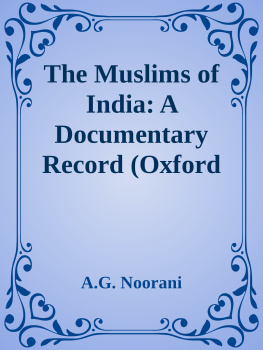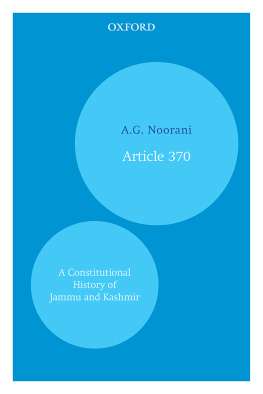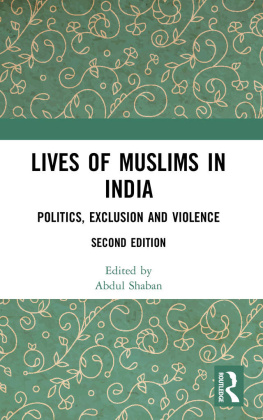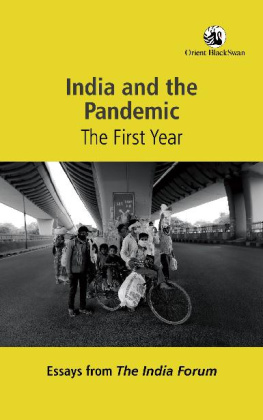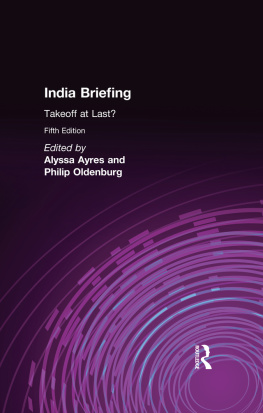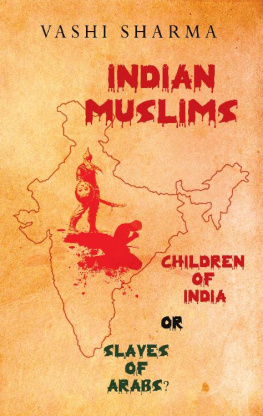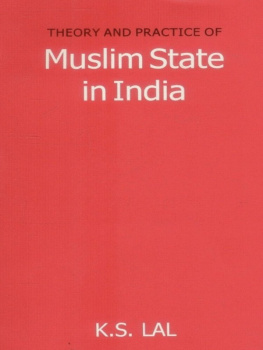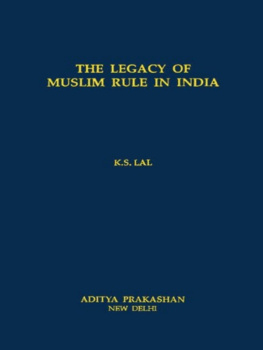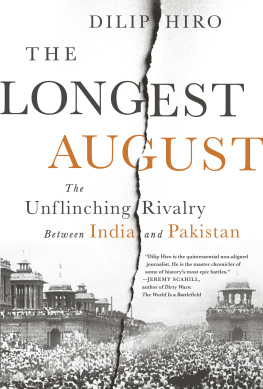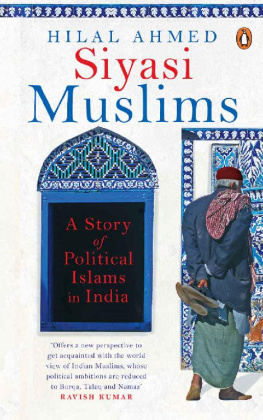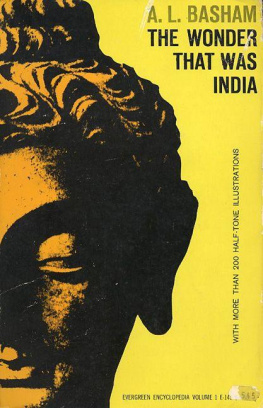A.G. Noorani - The Muslims of India: A Documentary Record (Oxford India Collection)
Here you can read online A.G. Noorani - The Muslims of India: A Documentary Record (Oxford India Collection) full text of the book (entire story) in english for free. Download pdf and epub, get meaning, cover and reviews about this ebook. year: 2004, publisher: OUP India, genre: Politics. Description of the work, (preface) as well as reviews are available. Best literature library LitArk.com created for fans of good reading and offers a wide selection of genres:
Romance novel
Science fiction
Adventure
Detective
Science
History
Home and family
Prose
Art
Politics
Computer
Non-fiction
Religion
Business
Children
Humor
Choose a favorite category and find really read worthwhile books. Enjoy immersion in the world of imagination, feel the emotions of the characters or learn something new for yourself, make an fascinating discovery.
- Book:The Muslims of India: A Documentary Record (Oxford India Collection)
- Author:
- Publisher:OUP India
- Genre:
- Year:2004
- Rating:5 / 5
- Favourites:Add to favourites
- Your mark:
- 100
- 1
- 2
- 3
- 4
- 5
The Muslims of India: A Documentary Record (Oxford India Collection): summary, description and annotation
We offer to read an annotation, description, summary or preface (depends on what the author of the book "The Muslims of India: A Documentary Record (Oxford India Collection)" wrote himself). If you haven't found the necessary information about the book — write in the comments, we will try to find it.
The Muslims of India: A Documentary Record (Oxford India Collection) — read online for free the complete book (whole text) full work
Below is the text of the book, divided by pages. System saving the place of the last page read, allows you to conveniently read the book "The Muslims of India: A Documentary Record (Oxford India Collection)" online for free, without having to search again every time where you left off. Put a bookmark, and you can go to the page where you finished reading at any time.
Font size:
Interval:
Bookmark:

Edited by
A.G. Noorani


YMCA Library Building, Jai Singh Road, New Delhi 110 001
Oxford University Press is a department of the University of Oxford.
It furthers the Universitys objective of excellence in research, scholarship,
and education by publishing worldwide in
Oxford New York
Auckland Cape Town Dar es Salaam Hong Kong Karachi Kuala Lumpur
Madrid Melbourne Mexico City Nairobi New Delhi Shanghai Taipei Toronto
With offices in
Argentina Austria Brazil Chile Czech Republic France Greece
Guatemala Hungary Italy Japan Poland Portugal Singapore
South Korea Switzerland Thailand Turkey Ukraine Vietnam
Oxford is a registered trademark of Oxford University Press
in the UK and in certain other countries
Published in India by Oxford University Press, New Delhi
Oxford University Press 2003
The moral rights of the authors have been asserted
Database right Oxford University Press (maker)
First published 2003
Oxford India Paperbacks 2004
Fifth impression 2011
All rights reserved. No part of this publication may be reproduced,
or transmitted in any form or by any means, electronic or mechanical, including
photocopying, recording or by any information storage and retrieval system,
without permission in writing from Oxford University Press.
Enquiries concerning reproduction outside the scope of the above should be
sent to the Rights Department, Oxford University Press, at the address above.
You must not circulate this book in any other binding or cover
and you must impose this same condition on any acquirer
ePub ISBN-13: 978-0-19-908774-7
ePub ISBN-10: 0-19-908774-1
Printed at Sapra Brothers, New Delhi 110 092
Published by Oxford University Press
YMCA Library Building, Jai Singh Road, New Delhi 110 001
To
The memory of my parents
Abdul Majeed and Havabai Noorani
T his is a selection of source material recording how the Muslims of India responded to the situation in which they found themselves after the partition of India, on the attainment of independence on 15 August 1947. The documents selected illustrate the major landmarks, one hopes, as best as a single, compact volume covering half a century can. A definitive record will run into several volumes. The emphasis is largely on the Muslims responses to the problems they face, and on the debates that ensued in the light of the advice which the community received, immediately on partition and thereafter, from Indias leaders like Gandhi, Nehru, Azad, and Patel. The Introduction knits the documents together, drawing attention to the major themes. It is not a definitive essay on the subject of the volume. Variant spellings of names, places, or words have been retained as that in the originals. Every attempt has been made to keep strictly to the original documents.
I am solely responsible for any shortcomings or blemishes, whether in comments in the Introduction or in the selection of the documents.
A. G. Noorani
Mumbai
February 2003
W hen India was partitioned into two states, India and Pakistan, on the attainment of independence from British rule, on 15 August 1947, the Muslims of India found themselves facing the same traumatic change which confronted their forbears ninety years ago at the time of the Mutiny in 1857. Radical change in the political order, amidst bloodshed and carnage, was accompanied with threat to old ways of living. Its dimensions they could only dimly perceive, its reality shook them. They feared the worst. As in 1857, their loyalty to the new state was suspect. They felt helpless and forlorn as they experienced distrust and hostile discrimination in their daily lives.
But there was a big difference between the two situations. The late nineteenth century threw up leaders of high staturemen of remarkable intellectual equipment, cultural attainment, strength of character, and commitment. They had capacity for leadership and were ready to plunge themselves in politics and provide the leadership which the community sorely needed.
In 1947, the Muslims of India found themselves leaderless. Those in whom they had, till the day before, reposed confidence, went to Pakistan. The ones who remained had none of the qualities of Syed Ahmed Khan, Ameer Ali, or Badruddin Tyabji. Maulana Abul Kalam Azad, their peer in most respects, demonstrated within months after the partition that his were the gifts of scholarship, even political wisdom and insight, but not of political leadership, still less of organization. Far smaller men came to the fore to grab the mantle of leadership and left imprints which the community has not been able to erase completely.
Bereft of determined and wise leadership, the Muslims of India took a wrong turn in 194849 and found themselves confused. Some treaded along the cul-de-sac of political mobilization for redress of grievances which shows no signs of lessening. The mobilization had been mostly on a commercial basis. Others found themselves largely ineffective in secular parties; not least because of their own inadequacies. On their part, the political parties reckoned that too strident an espousal of the Muslims cause might cost them support from the majority community and doom them to marginalization, if not extinction. The dilemma could be resolved only by a concerted effort by both sides; the Muslims should participate actively in all fields of national endeavour, striving to put to rest memories of an unhappy past, while the secular parties should assist them in this effort and make redressal of Muslims grievances part of a wider campaign for eradication of social wrong and economic deprivation.
Things went wrong soon after the partition. Experience even during the British rule amply demonstrated that by themselves constitutional safeguards are hopelessly inadequate. They need political underpinning. If protection was no help, partition was no solution to the problem, rather it aggravated it. Participation in public life alone, in its entire range of activities, provides hope. The deepening divide between Hindus and Muslims was attributed to separate electorates which the Lucknow Pact between the Indian National Congress and the Muslim League endorsed in 1916. It held sway till the partition of India in 1947. But a vital aspect of the pact was neglected. It secured the Muslim Leagues acceptance of a whole set of proposals for substantial advance in responsible government. Protection of minorities was linked to their participation in the countrys march towards freedom. Years later, two socialist leaders, Asoka Mehta and Achyut Patwardhan, made an important point: While the Muslims gained substantial weightage, they gave up their right to vote in the General Constituencies that they had enjoyed so long. In dropping it, they lost an important leverage and began to isolate themselves from the rest of India.
The Report on Indian Constitutional Reforms (1918), jointly authored by the Secretary of State for India, Edwin S. Montague, and Viceroy Lord Chelmsford, criticized the Lucknow Pact but acquiesced in it, because it represented an inter-communal accord.
Font size:
Interval:
Bookmark:
Similar books «The Muslims of India: A Documentary Record (Oxford India Collection)»
Look at similar books to The Muslims of India: A Documentary Record (Oxford India Collection). We have selected literature similar in name and meaning in the hope of providing readers with more options to find new, interesting, not yet read works.
Discussion, reviews of the book The Muslims of India: A Documentary Record (Oxford India Collection) and just readers' own opinions. Leave your comments, write what you think about the work, its meaning or the main characters. Specify what exactly you liked and what you didn't like, and why you think so.

